eCommerce & Digital Marketing: Newest Trends
DMEXCO 2023: eCommerce Trends & Highlights – AI is Dominating
Want to know the latest trends in eCommerce and digital marketing 2023? Artificial intelligence, sustainability, green tech, and hyper-personalization were the hot topics at DMEXCO 2023.
Article by Patrick Nowak | October 18, 2023Download
Coming soon
Share
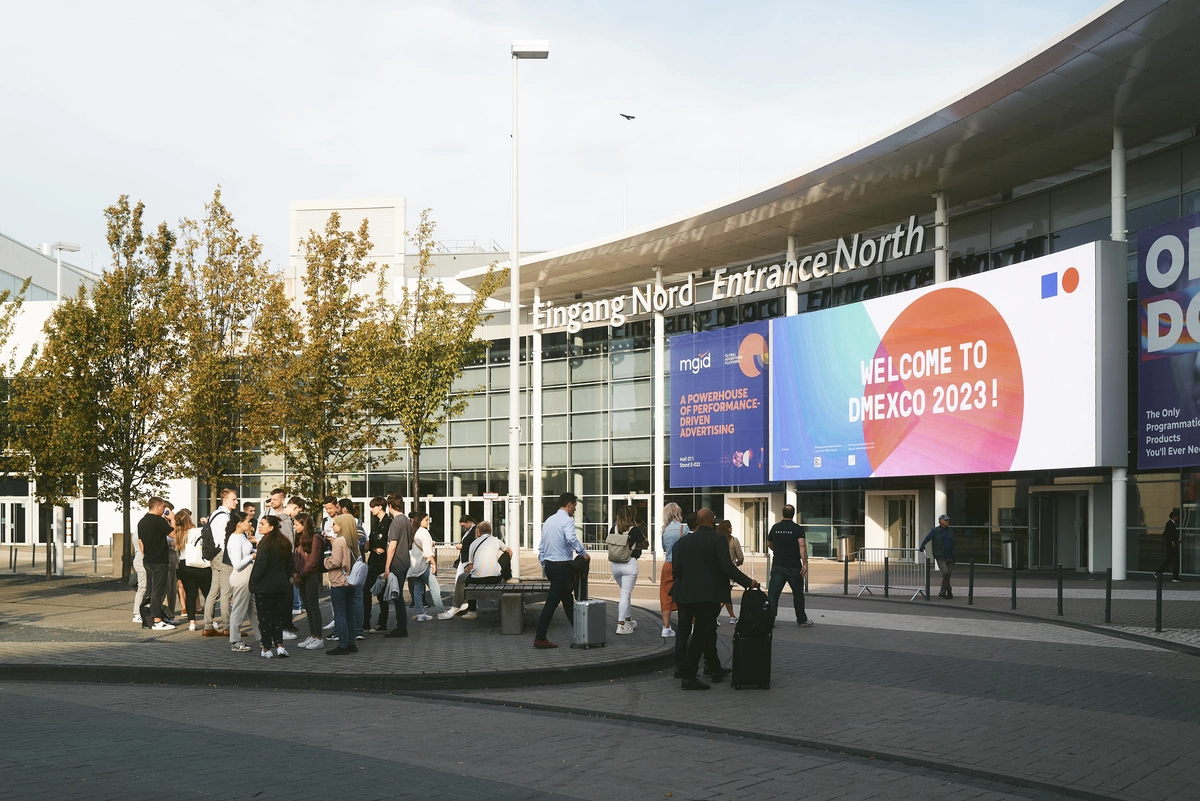
DMEXCO 2023 took place on 20-21 September in the beautiful city of Cologne, Germany. As one of the finest conferences for digital marketing and eCommerce, it was brimming with insights. With more than 700 international speakers, attendees had access to over 200 hours of content. Naturally, one couldn't catch them all.
But don't worry, ecommerceDB was on the ground. Here are the latest and most important eCommerce and digital marketing trends of 2023.

DMEXCO 2023 Trends: AI First?
At DMEXCO in Cologne, the focus centered on organizational transformation and the responsible scaling of AI, ensuring copyright protection and preventing the dissemination of inaccurate information.
Samir Fadlallah, Chief Information Officer at Axel Springer SE and Chief Technology Officer at News Media Germany, made a provocative statement at DMEXCO. During his talk about "Gen AI – Savior or Nemesis of the Media Industry?", he shared some insights about the media giants' approach to AI.
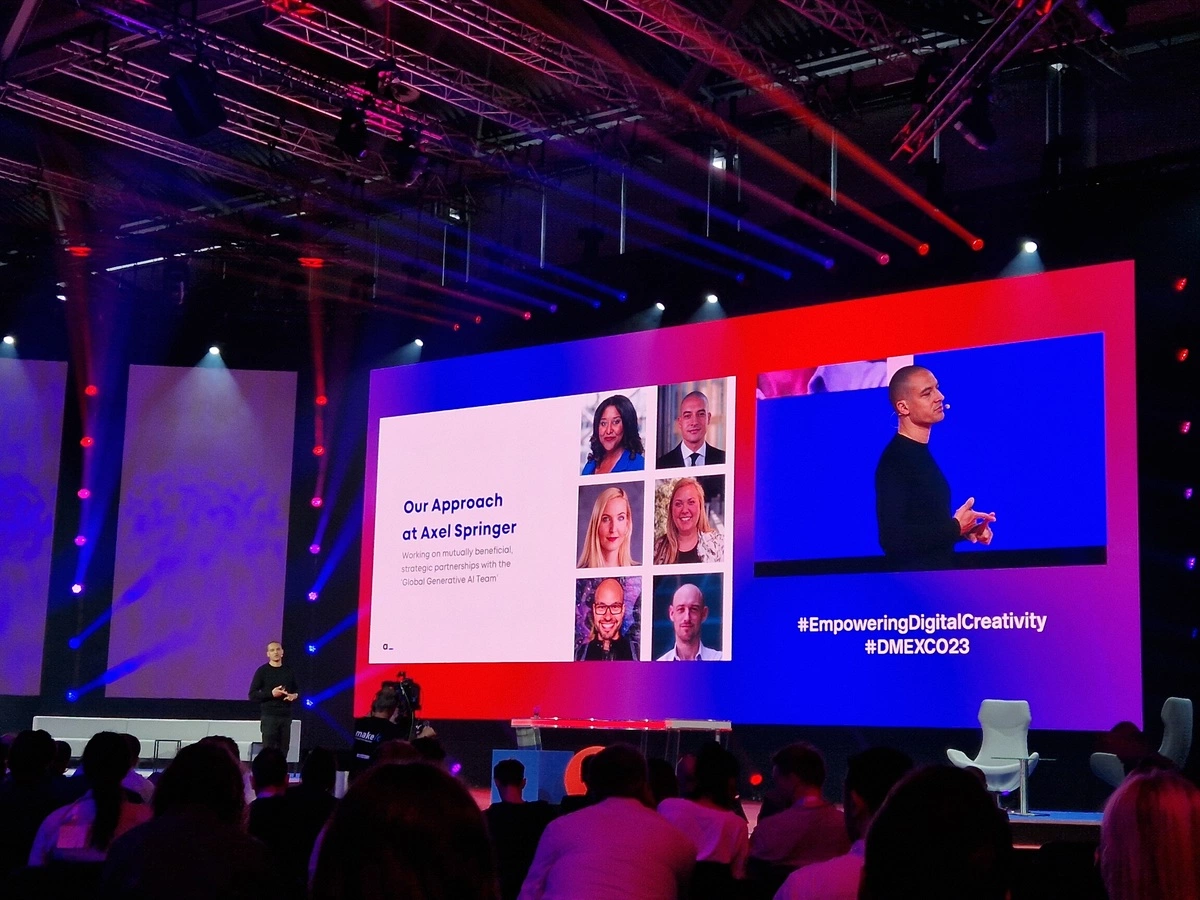
The goal is to strengthen Axel Springer as a cohesive enterprise and its distinct brands by formulating and clarifying strategies for the integration of generative AI. In his words: "Axel Springer is going to be an AI first company", requiring employees to adapt and reconfigure their professional routines.
Yet, Fadlallah is cognizant of the inherent risks. He likens the AI market to "the wild west", predicting impending regulations. The nature and impact of these regulations remain to be seen.
Microsoft And Google: Integrating AI Into Our Daily Lives
As AI's presence in our everyday lives grows, it's clear it's not just limited to large language models. Soon, AI will be as common as the GPS in our cars. Saurabh Tiwary, Corporate Vice President & Technical Fellow at Microsoft, showcased the latest advancements in generative AI, emphasizing its game-changing capabilities for the advertising industry.
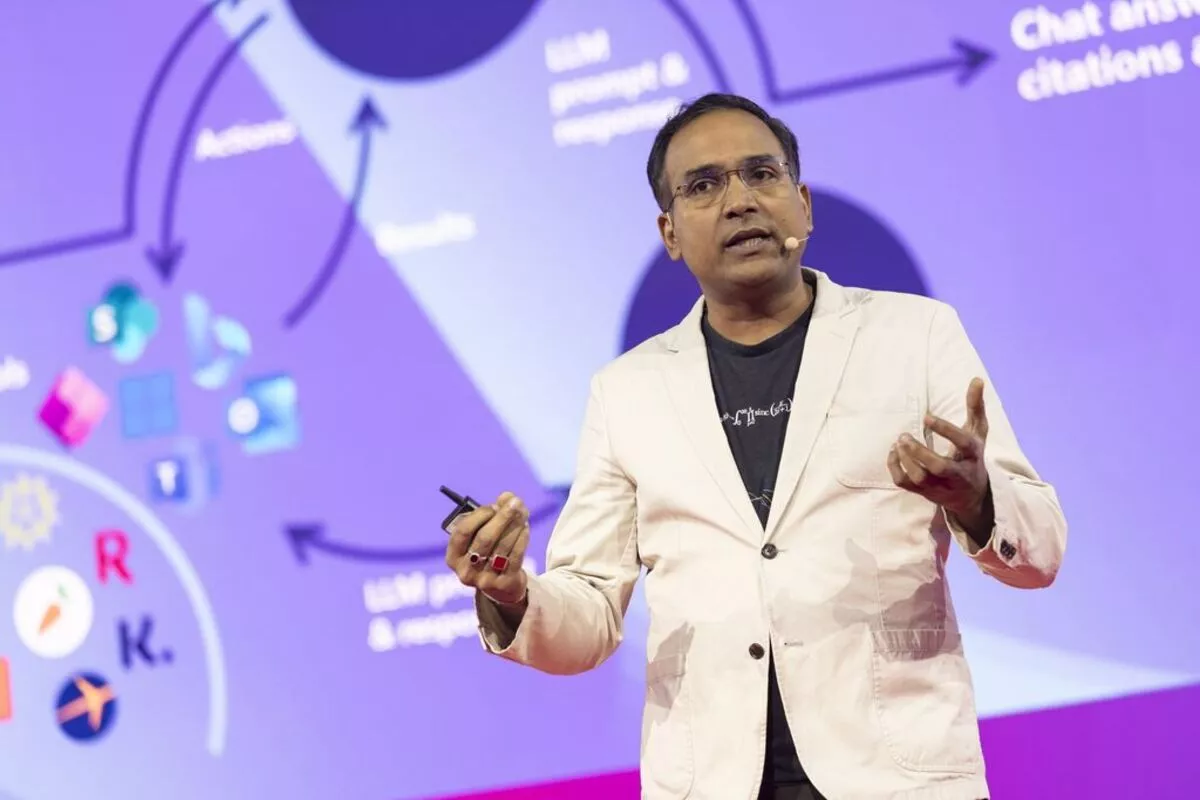
Avoiding overly technical terms, there will be notable changes in how search engines like Microsoft's Bing function. While Bing remains useful for navigating to specific sites, Bing Chat will handle informational queries. Microsoft's AI, enhanced with diverse plugins and third-party contributions, won't just present plain text - but also provide linked content, allowing users to cross-check search findings. It will also assist with bookings or guide users to specific products, marking a shift in digital interaction.
This AI innovation will also be part of other Microsoft platforms, including Windows and Office tools like Teams.
On a related note, Google is not far behind. On 19 September, they announced plans to integrate their AI chatbot, Bard, into various platforms such as Gmail, Maps, and YouTube, aiming to enhance the overall Alphabet user experience.
Hyper-personalization & Data Driven Content
These are not just buzzwords: Hyper-personalization leverages real-time data, AI, machine learning, and predictive analytics to gain deeper insights into individual audience preferences and subsequently tailor actions based on that information.
In simpler terms: Hyper-personalization is the key to an optimal advertising strategy. The "one size fits all" mentality, typical of traditional media like radio or TV, no longer operates as effectively as it once did. This was a major discussion point in a panel at DMEXCO, featuring notable figures like Nadine Kamski from L’Oréal, Frank Vogel from Ad Alliance, Robert Jozic from Schwarz Media, and Goetz Trillhaas from Snap Inc.
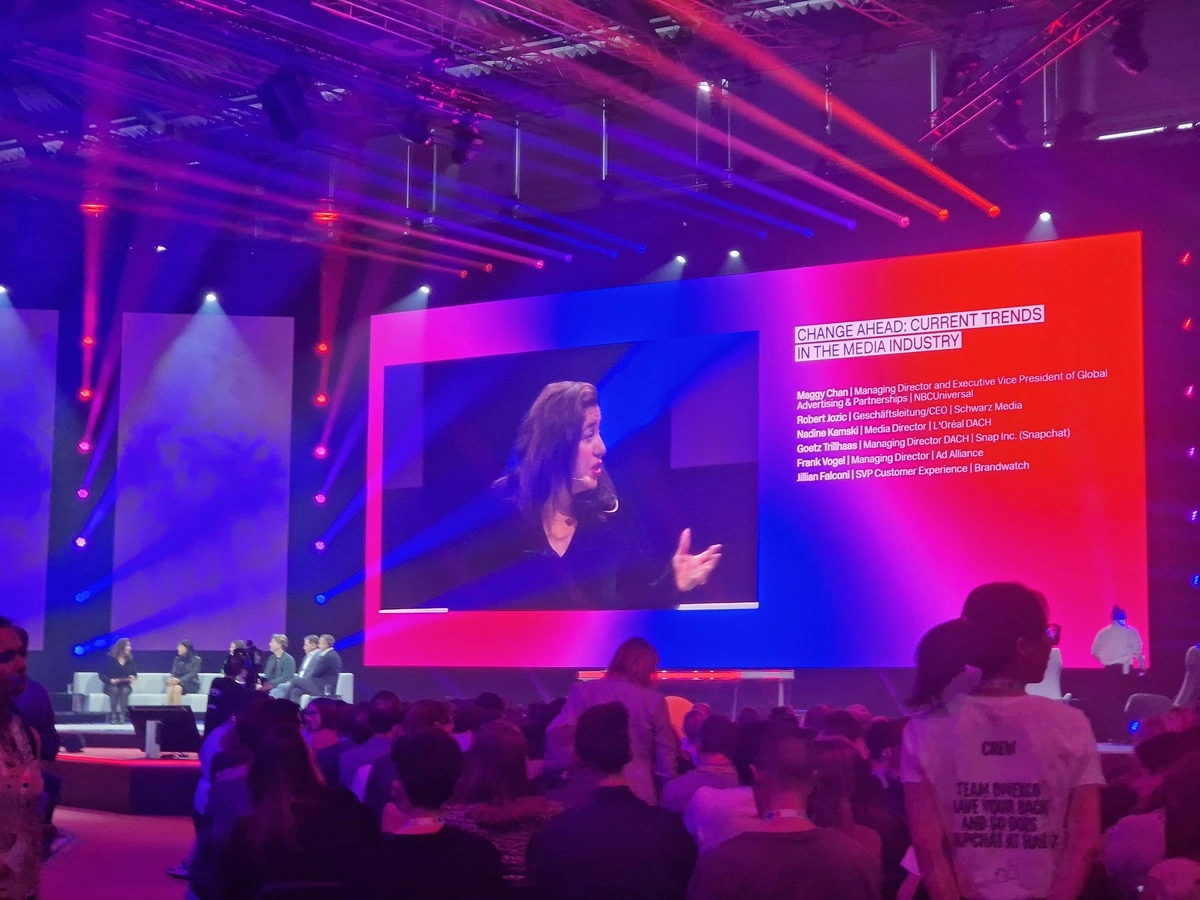
Nadine Kamski, who oversees the strategic management of L’Oréal's media budget across Germany, Austria, and Switzerland, emphasized the need for agility in today's media landscape. She highlighted the importance of relying on technology and delivering personalized advertisements to align with consumers, underscoring the essence of hyper-personalization.
Frank Vogel posed a pertinent question: "Which stories truly resonate with people? How can they be genuinely excited about brands?" He pointed out that linear television isn't dead. Events like the Champions League matches still offer lucrative advertising opportunities.
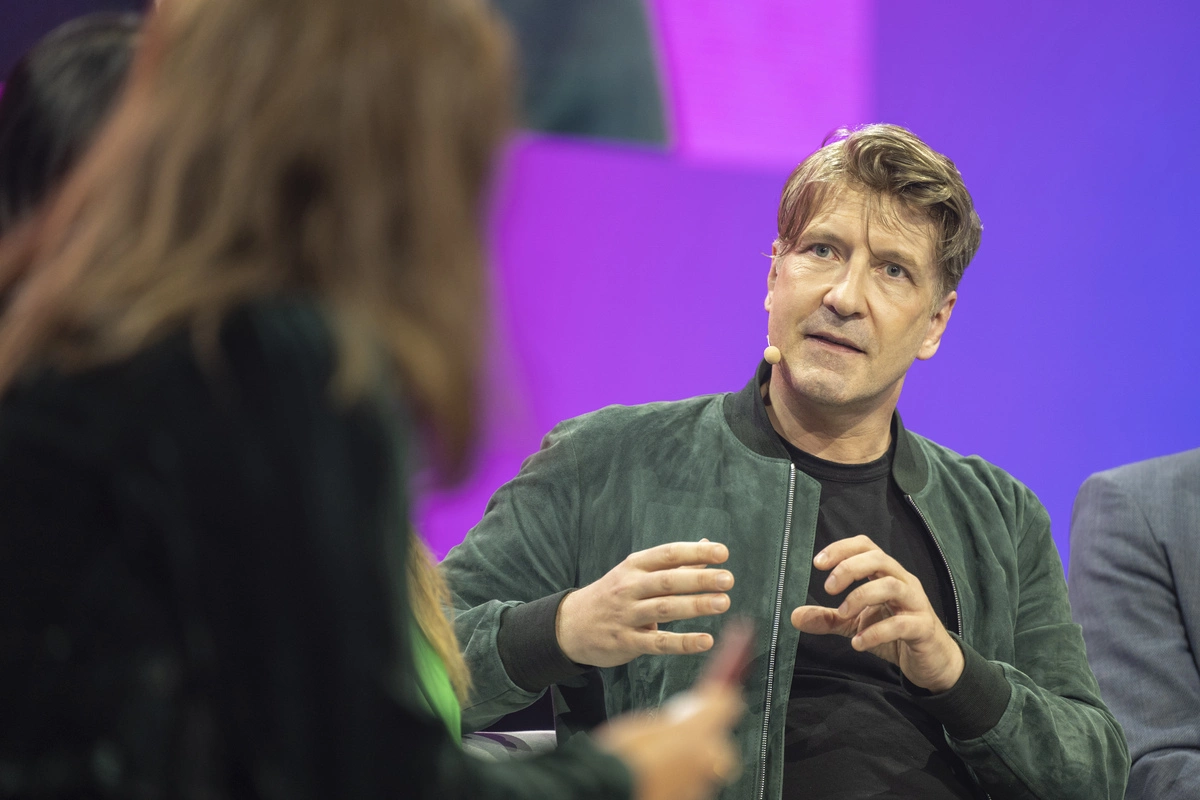
Goetz Trillhaas of Snap Inc. predicts a surge in social commerce. Remarkably, two-thirds of all eCommerce transactions are already influenced by social media.
Social Commerce About To Explode
This statement seems to be a bit over the top, but social commerce is indeed growing rapidly. Estimating the revenue produced by social commerce platforms can be challenging. Data from Statista indicates that social commerce attained global revenues of US$724 billion in 2022. Projections suggest this figure might surpass US$6 trillion by 2030. Refer to the chart below for a detailed breakdown.
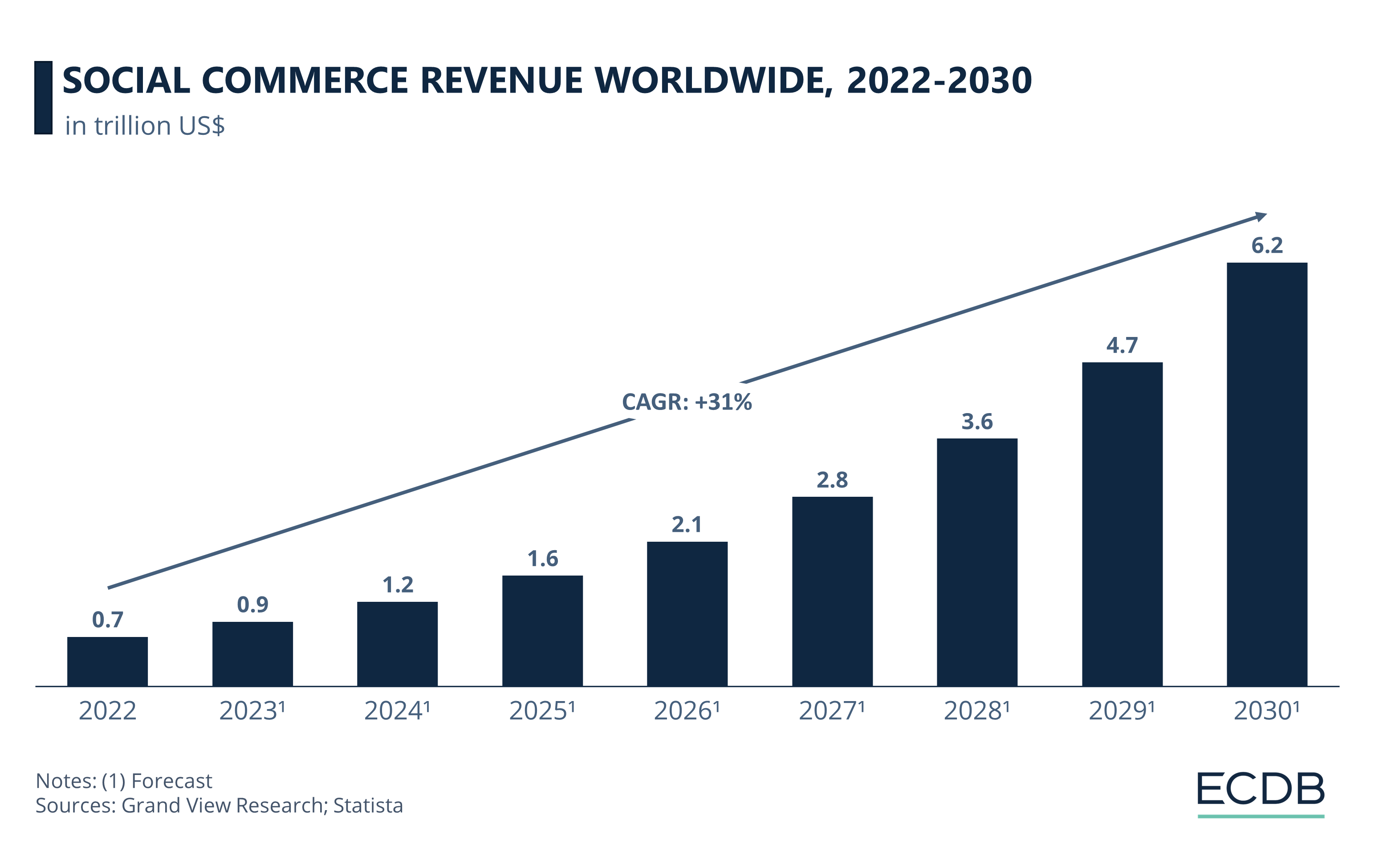
Other publications predict different trajectories, including estimates that social commerce will surpass US$1 trillion by 2023 or US$1.2 trillion by 2025. It is clear that social commerce platforms have an enormous potential for the future of eCommerce, not least because of the growing number of global players in the space.
Green Delivery: Greenwashing Versus True Sustainability
Also a big topic: Sustainability and green delivery. As awareness grows about the impact our consumption and industry have on the world, more people are rethinking their choices. One emerging concept is "green delivery," where customers can decide when a product is delivered.
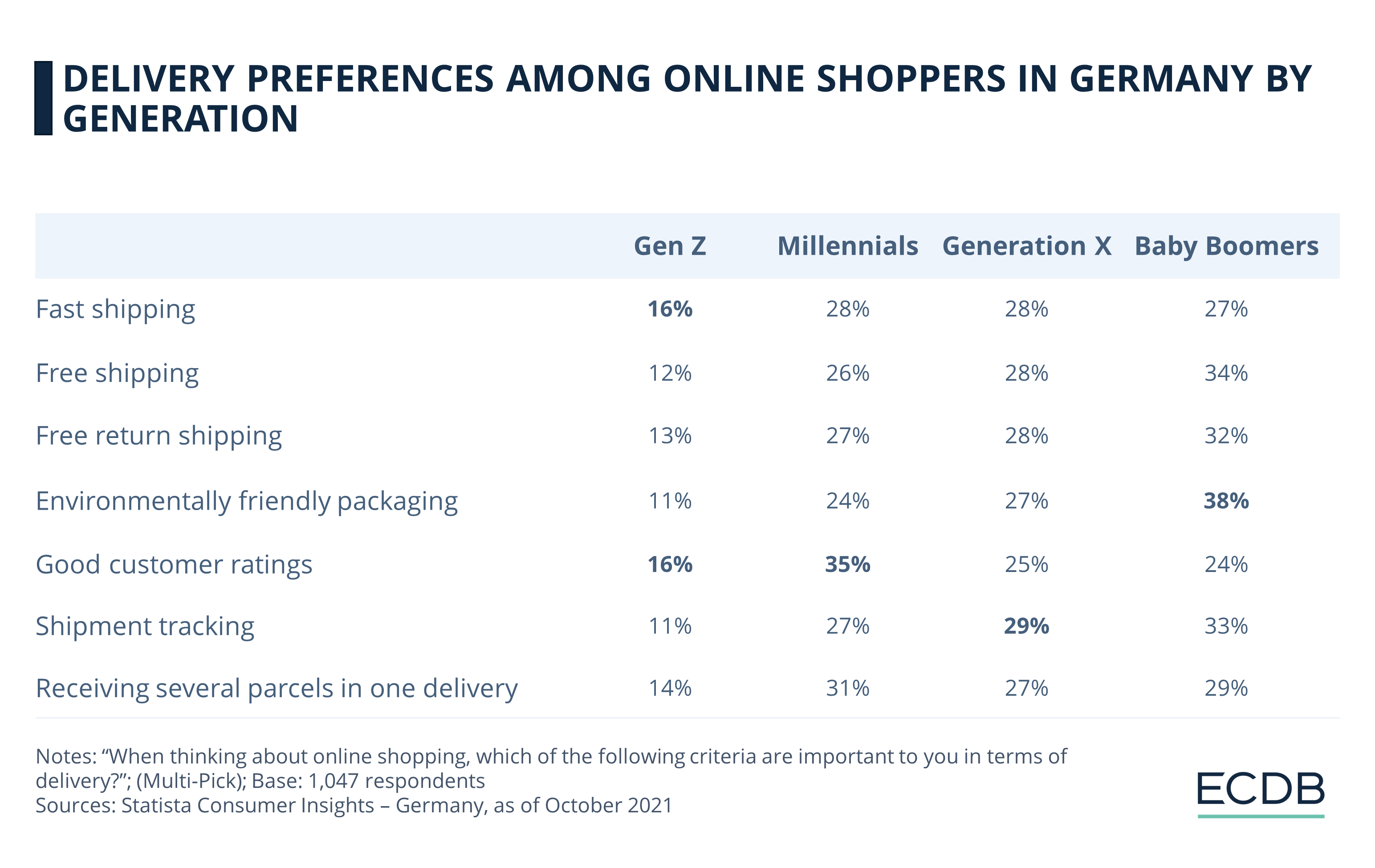
This approach ensures, for example, that a delivery person doesn't have to take the same route multiple times. Instead, products can be delivered when the driver is already on that route. Even though current data might suggest otherwise, this trend is expected to rise.
DMEXCO 2023: Trends And Highlights
AI at the Forefront: DMEXCO's primary focus was on the ethical and responsible use of AI, with emphasis on copyright protection and accuracy. Axel Springer SE is emphasizing an "AI first" approach, reshaping its entire organizational strategy around generative AI.
AI Integration in Daily Life: Both Microsoft and Google are heavily integrating AI into everyday tools. Microsoft's Bing Chat will handle informational queries and may also enable functionalities like bookings. Google is incorporating its AI chatbot, Bard, into Gmail, Maps, and YouTube.
Hyper-Personalization is Key: The era of "one size fits all" in advertising is phasing out. Emphasis is on leveraging real-time data and AI to understand individual audience preferences and create personalized experiences. Notably, two-thirds of eCommerce transactions are influenced by social media.
Surge in Social Commerce: The growth of social commerce is undeniable. In 2022, social commerce revenues hit US$724 billion globally, and by 2030, it might exceed US$6 trillion.
Rise of Green Delivery: With increasing consciousness about environmental impact, "green delivery" is emerging. It emphasizes efficient delivery routes, potentially reducing multiple trips and promoting sustainability.

Click here for
more relevant insights from
our partner Mastercard.
Related insights
Deep Dive
Next Generation eCommerce: Key Trends Shaping the New Age of Online Retail
Next Generation eCommerce: Key Trends Shaping the New Age of Online Retail
Deep Dive
Google's AI Project Jarvis Could Change Online Shopping
Google's AI Project Jarvis Could Change Online Shopping
Deep Dive
The Customer Journey in Online Shopping: It Begins with Search Engines
The Customer Journey in Online Shopping: It Begins with Search Engines
Deep Dive
TikTok Shop Expands Operation in the United States
TikTok Shop Expands Operation in the United States
Deep Dive
Fast Fashion Online Market: Fast Fashion Is Not Fair Fashion
Fast Fashion Online Market: Fast Fashion Is Not Fair Fashion
Back to main topics